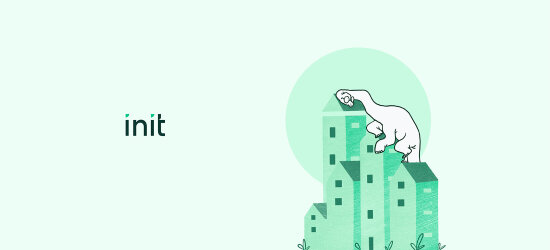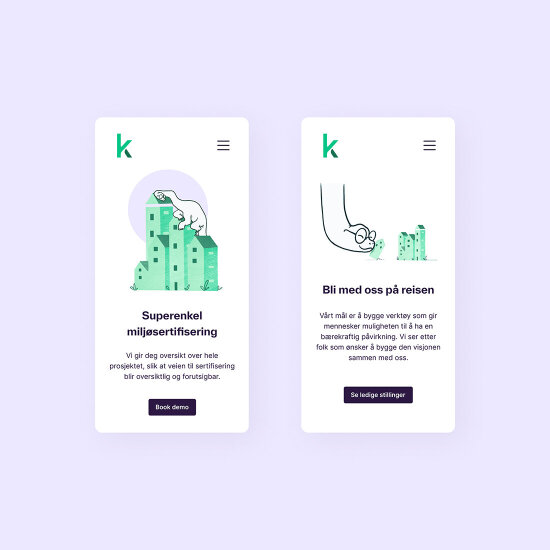
In 2018, Fabian Utigard was a student with a summer job. He was tasked with providing assistance with the environmental certification of major construction projects. In doing so, he noted the challenges that construction projects encounter as they seek to keep tabs on all the documentation, and to secure the required rate of progress in the certification process. In this type of project, numerous contributors need to be involved with complicated processes to ensure correct reporting.
When he later attended the NTNU School of Entrepreneurship, Utigard, by then a civil engineer, had the idea of creating a digital platform in order to simplify it all. He joined forces with Mathias Engevik and Eirik Tømmervik and founded Kvist Solutions.
Hit a nerve with the construction industry
When they started talking to people in the industry, they found that they had hit a nerve. People recognised themselves in the scenarios that were presented.
This was to become the starting point for the work to develop and design init – a digital platform for simple and clear environmental certification and sustainability reporting.
Several of the largest players in Norway’s construction industry, such as Veidekke, Skanska, NCC, AF Gruppen and OBOS, invested time and resources in taking part in the survey and the pilot projects.
The founders received support from DOGA’s innovation programme DIP to enable them to hire a designer, and they commissioned Nice design agency to provide support at an early stage of the development process. This was to be crucial for the progress of the project and for making the solution simple and user friendly.
What started as a student business now has 12 members of staff and a rapidly growing customer portfolio in both Norway and Sweden. The collaboration with leading players has also generated new products and services.

Photo: init
The company has secured funding from Innovation Norway, and has also recently received support from recognised investors like DNB Ventures, Arkwright X, Alliance Venture, Stor-Oslo Eiendom and Squid (formerly Vater), in addition to angel investors.
13 per cent of the 2030 climate target
The init tools have been purchased by consultants, builders and developers and are currently being used for several building projects.
The positive environmental impact will be considerable. According to BRE (that manages and develops the BREEAM framework), environmentally certified buildings will emit 22 percent less CO2 in the course of their lifetime than uncertified buildings. If all new construction projects are correctly environmentally certified, the total carbon emissions saved will equal 6.6 percent of Norway’s total annual emissions.
Norway’s climate target is to reduce emissions by 50 per cent by 2030. Consequently, the saving generated by securing environmental certification of all construction projects will equal 13 per cent of Norway’s climate target.
Brief facts about the project
init: A digital platform for simple and clear environmental certification and sustainability reporting in the construction industry
By: Kvist Solutions
Design disciplines: Interaction design, Service design, Brand and identity design
Recipient of the DOGA Award
This project has received the DOGA Award for Design and Architecture for its outstanding qualities and for showing how strategic use of design and architecture create important social, environmental and economic value.
These are three reasons why this is an exemplary project:
- Catalyst for the green transition
By simplifying environmental reporting and certification, init is a catalyst for the green transition and the construction industry.
- Promotes learning across the sector
init unites best practice from various stakeholders in the construction industry in one place. This enables better learning across the sector and helps the industry to remain updated on the best available solutions. - Frees up valuable time
init replaces slow, outdated processes. This frees up valuable time that can be used to develop new, more sustainable solutions in the construction industry.